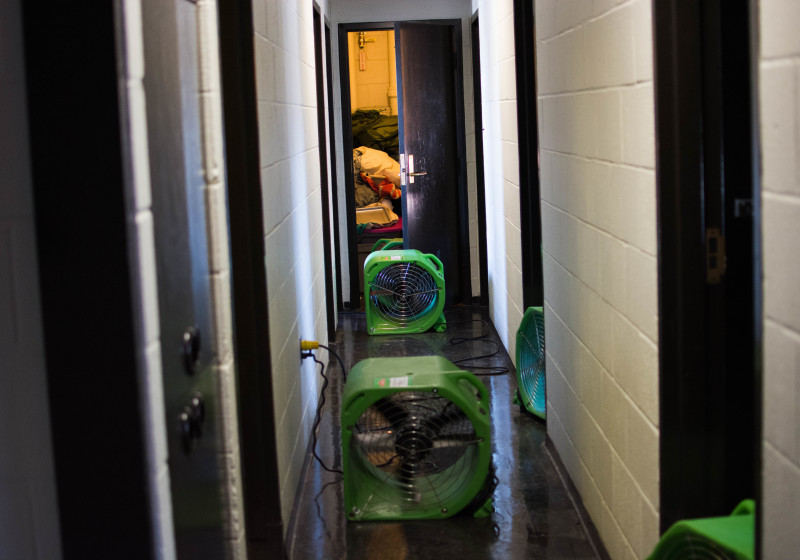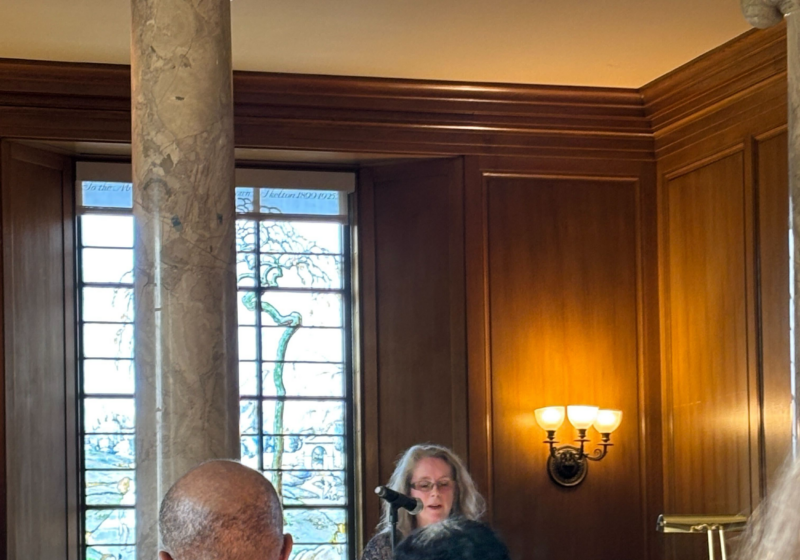Students affected by the Valentine’s Day flooding in Gale House can seek University reparation, the Campus Times has learned—a revelation that comes in the wake of the administration’s formal response on Wednesday to the incident and the student outrage it spawned.
Gale residents who lost laptops, books, and other academic-related possessions in the flooding may qualify for reimbursement from a University fund that helps students with financial issues that have impacted their academic lives.
The fund, according to Students’ Association (SA) President Grant Dever, “exists for student who do not have the financial means to replace these products,” and features a vetting process to determine whether a student’s situation merits action.
Dever said that the money in the fund can potentially be used to repair or replace laptops and books damaged by the flooding, which was caused by a burst pipe on the fourth floor of Gale and left residents with between $4,000 and $10,000 in damages, according to SA estimates last month.
Damages to University property totalled over $25,000.
Affected students can see if they qualify for help by speaking to Dean of Students Matthew Burns, something that Dever had urged in the immediate aftermath of the flood.
The February flooding unleashed waves of student outrage, with many railing against the University’s initial decision not to reimburse students. Dever published an open letter after the flooding calling for compensation, and the SA Senate unanimously passed a resolution urging the administration to do the same.
Others criticized the University’s silence in response to student grievances, with no formal statement being issued until Wednesday, in an email from Feldman to Dever and a Campus Times editor over a month after the incident.
Feldman and Laurel Contomanolis, Director of the Office for Residential Life and Housing Services, penned the statement, which acknowledged that “some losses such as computers and electronics are impactful and upsetting.”
The response was not published anywhere by the University itself, and, in his email, Feldman told Dever to “please feel free to share this letter with the Students’ Association, and circulate to others as you see fit.”
Dever said his “position remains that this situation should’ve been formally addressed sooner and that any similar future incident would warrant a timely response.”
Contomanolis and Dever met last month to discuss sending a campus-wide email about the incident and student anger, but Contomanolis, according to Dever, was “worried that a formal response will only stir the pot more.”
When asked in February about this hesitation, she thought such an email would be “too broad.”
Dever said that he and Contomanolis have not met since.
Feldman called the delayed response “primarily my responsibility” and explained that with missing information and travelling to meetings, he was unable to focus on the draft.
“I regret that it has taken so long,” he said.
Burns confirmed the compensatory fund’s existence, though he said he could not comment on whether any students affected by the flooding had been helped by it.
“It is only available to students who meet the criteria above, not to the general population at large,” he said, explaining why the fund is not publicized. “The donors wish to remain anonymous except to those students directly receiving funds, and I support and respect those wishes.”
SA Senator Anmol Almast, who spearheaded the Senate’s resolution for reimbursement, said she reached out to Gale residents to tell them they could contact Burns about the fund, but Gale residents the Campus Times spoke with said they had not been informed of possible compensation through the fund as of Tuesday.







